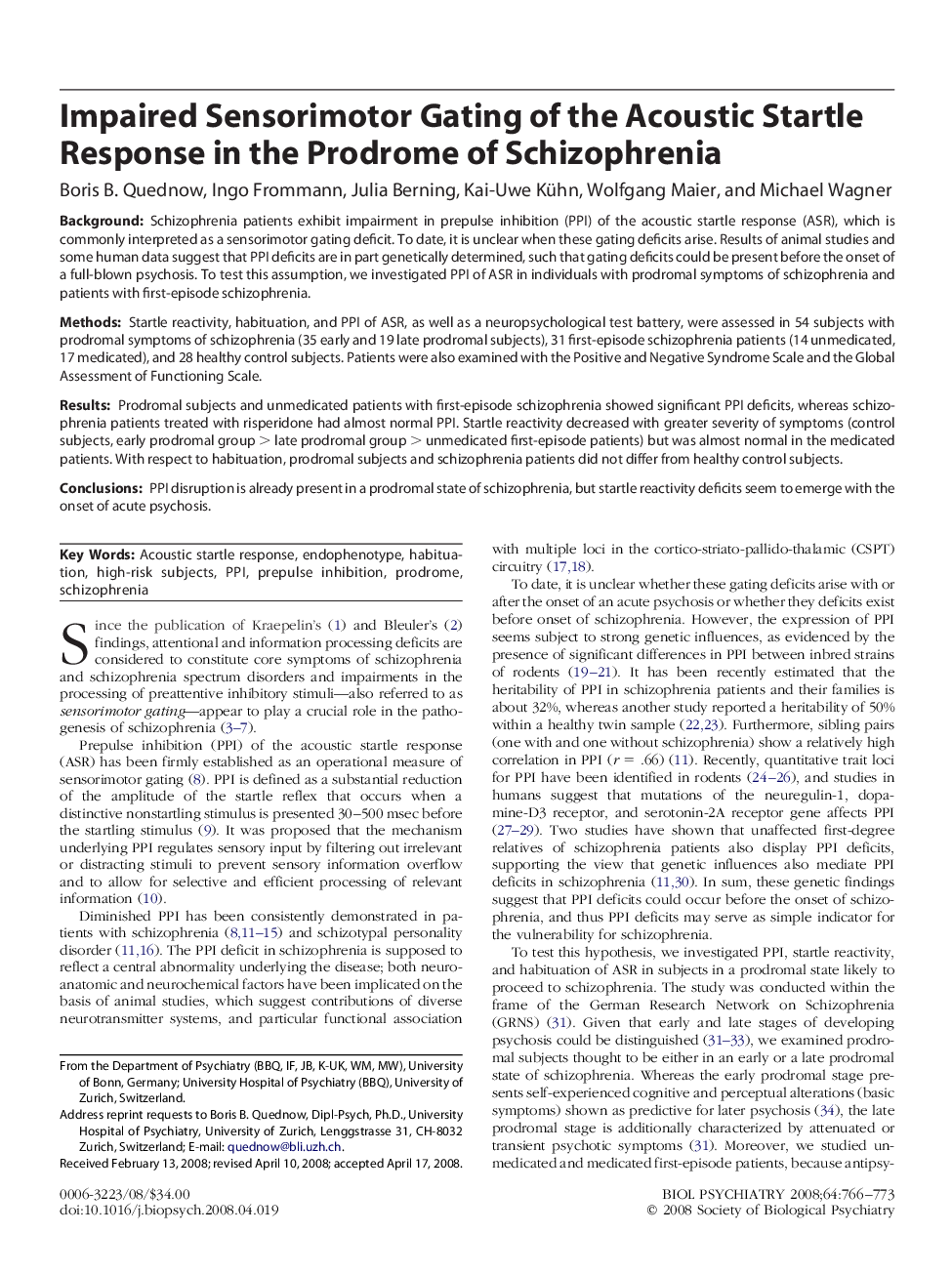| کد مقاله | کد نشریه | سال انتشار | مقاله انگلیسی | نسخه تمام متن |
|---|---|---|---|---|
| 4179554 | 1276554 | 2008 | 8 صفحه PDF | دانلود رایگان |

BackgroundSchizophrenia patients exhibit impairment in prepulse inhibition (PPI) of the acoustic startle response (ASR), which is commonly interpreted as a sensorimotor gating deficit. To date, it is unclear when these gating deficits arise. Results of animal studies and some human data suggest that PPI deficits are in part genetically determined, such that gating deficits could be present before the onset of a full-blown psychosis. To test this assumption, we investigated PPI of ASR in individuals with prodromal symptoms of schizophrenia and patients with first-episode schizophrenia.MethodsStartle reactivity, habituation, and PPI of ASR, as well as a neuropsychological test battery, were assessed in 54 subjects with prodromal symptoms of schizophrenia (35 early and 19 late prodromal subjects), 31 first-episode schizophrenia patients (14 unmedicated, 17 medicated), and 28 healthy control subjects. Patients were also examined with the Positive and Negative Syndrome Scale and the Global Assessment of Functioning Scale.ResultsProdromal subjects and unmedicated patients with first-episode schizophrenia showed significant PPI deficits, whereas schizophrenia patients treated with risperidone had almost normal PPI. Startle reactivity decreased with greater severity of symptoms (control subjects, early prodromal group > late prodromal group > unmedicated first-episode patients) but was almost normal in the medicated patients. With respect to habituation, prodromal subjects and schizophrenia patients did not differ from healthy control subjects.ConclusionsPPI disruption is already present in a prodromal state of schizophrenia, but startle reactivity deficits seem to emerge with the onset of acute psychosis.
Journal: Biological Psychiatry - Volume 64, Issue 9, 1 November 2008, Pages 766–773